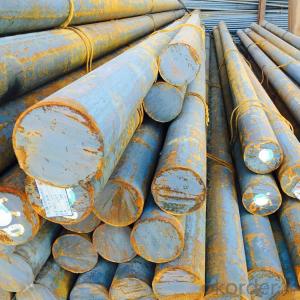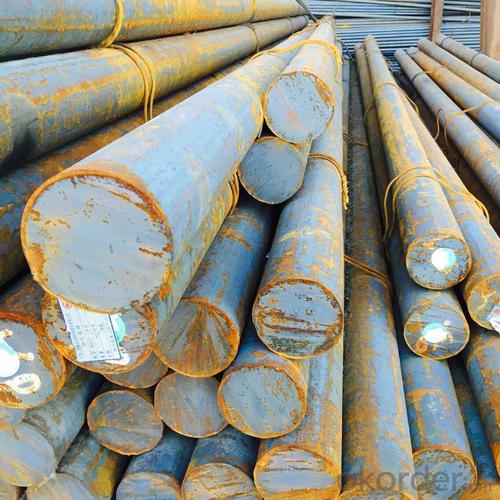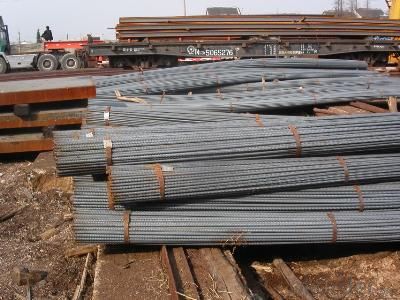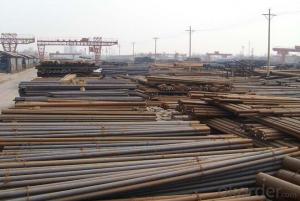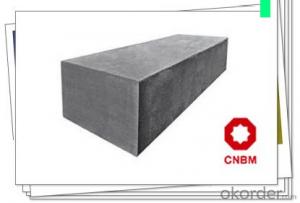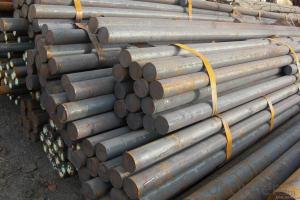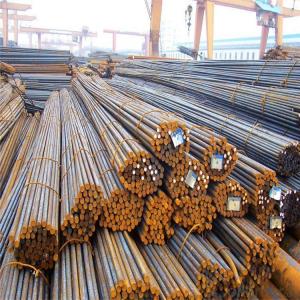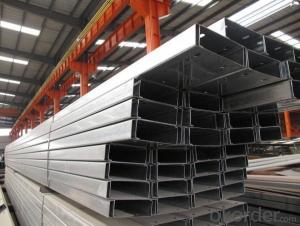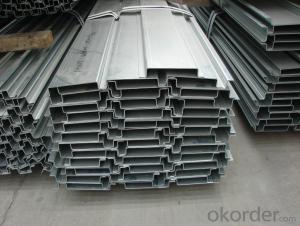Special Steel S45C Carbon Structural Steel
- Loading Port:
- China main port
- Payment Terms:
- TT OR LC
- Min Order Qty:
- 30 m.t.
- Supply Capability:
- 10000 m.t./month
OKorder Service Pledge
OKorder Financial Service
You Might Also Like
Specification
Product Information
1. Grade Comparison
GB | ASTM | JIS | DIN |
45# | SAE1045 | S45C | C45 |
2. Chemical Composition
Grade | C | Si | Mn | P | S | Cr | Cu | Ni |
45# | 0.42-0.50 | 0.17-0.37 | 0.50-0.80 | ≤0.035 | ≤0.035 | ≤0.25 | ≤0.25 | ≤0.30 |
S45C | 0.42-0.48 | 0.15-0.35 | 0.60-0.90 | ≤0.030 | ≤0.035 | - | ≤0.30 | ≤0.20 |
C45 | 0.42-0.50 | ≤0.40 | 0.50-0.80 | ≤0.045 | ≤0.045 | ≤0.40 | - | ≤0.40 |
1045 | 0.43-0.50 | 0.15-0.35 | 0.60-0.90 | ≤0.040 | ≤0.050 | - | - | - |
3. Brief Introduction:
Dimension | 13-350mm |
Length | 2-13m or as per your request |
Delivery condition | Hot rolled |
Heat Treatment | Normalizing, Annealing, Quenching |
Packing | Standard seaworthy packing or according to your requirements |
4. Application:
1) Can be used in many fields such as building, automobile, shipbuilding,
petrochemical, machinery, medicine, food, electric power, energy, space and decoration, etc.
2) Can be made into mould template, mortise pin, column
3) This kind of steel have good mechanical property, is widely used in structural parts
4) which may support stress alternation, especially made into some connecting
rods, bolts, wheel gear...
5) This kind of steel is the most common blanks and materials of shaft part
Product Show
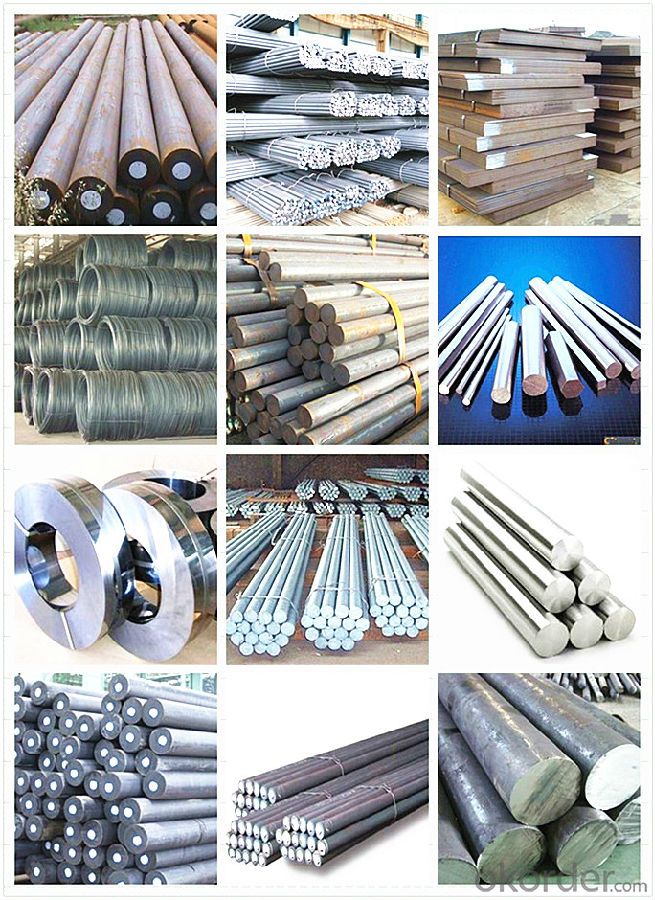
Workshop Show
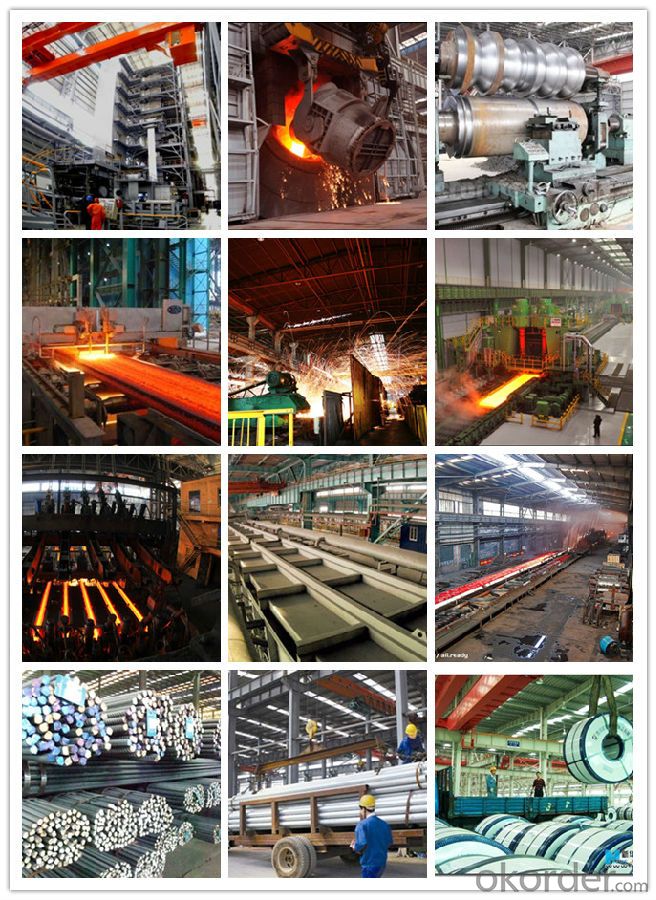
Shipping
1. FedEx/DHL/UPS/TNT for samples, Door-to-Door;
2. By Air or by Sea for batch goods, for FCL; Airport/ Port receiving;
3. Customers specifying freight forwarders or negotiable shipping methods!
Delivery Time: 3-7 days for samples; 5-25 days for batch goods.
Payment Terms
1.Payment: T/T, L/C, Western Union, MoneyGram,PayPal; 30% deposits; 70% balance before delivery.
2.MOQ: 1pcs
3.Warranty : 3 years
4.Package Informations: 1) EXPORT, In 20 feet (GW 25 ton) or 40 feet Container (GW 25 ton)
2)as customer's requirement
Why choose us?
(1) The leading exporter in China special steel industry.
(2) Large stocks for various sizes, fast delivery date.
(3) Good business relationship with China famous factories.
(4) More than 7 years steel exporting experience.
(5) Good after-sales service guarantee.
- Q: What is the significance of carbon content in special steel?
- The carbon content in special steel is significant as it determines the steel's strength, hardness, and overall performance. Higher carbon content usually results in increased hardness and strength, making it suitable for applications that require high durability and resistance to wear. On the other hand, lower carbon content enhances the steel's ductility and ease of machining. The right balance of carbon content in special steel allows manufacturers to tailor the material to specific needs, ensuring optimal performance in various industries such as automotive, aerospace, and construction.
- Q: How does special steel contribute to the flexibility of products?
- There are multiple ways in which special steel contributes to the flexibility of products. Firstly, its high strength and durability are well-known, enabling manufacturers to create products that can withstand heavy loads or extreme conditions. This allows for the production of flexible products suitable for various applications, ranging from automotive parts to construction materials. Furthermore, special steel possesses exceptional ductility and malleability, meaning it can be easily shaped, bent, or molded into different forms without compromising its structural integrity. This flexibility in design empowers manufacturers to produce products with intricate details and complex shapes, meeting specific customer demands or industry standards. Moreover, special steel's resistance to corrosion and wear guarantees that products made with this material have a longer lifespan and can endure harsh environments. This enhances the flexibility of products by minimizing the need for frequent replacements or repairs, ultimately saving time and costs for both manufacturers and end-users. Additionally, special steel's ability to maintain its mechanical properties at high temperatures makes it suitable for applications where thermal stability is vital. This enables the production of products that can function reliably in extreme heat or cold conditions, expanding their potential uses in industries such as aerospace, energy, or manufacturing. To summarize, special steel's high strength, ductility, corrosion resistance, and thermal stability all contribute to the flexibility of products. By providing a versatile and dependable material, special steel facilitates the production of products that can adapt to diverse requirements and environments, offering improved performance and longevity.
- Q: How does special steel perform in high-stress environments?
- Special steel performs exceptionally well in high-stress environments due to its unique properties. Its enhanced strength, durability, and resistance to corrosion make it highly reliable and capable of withstanding extreme conditions. This allows it to maintain its structural integrity and prevent deformation or failure, making it ideal for use in demanding industries like aerospace, oil and gas, and automotive.
- Q: How does special steel perform in terms of electrical resistivity?
- Special steel typically has a relatively high electrical resistivity, which means it offers greater resistance to the flow of electric current compared to other materials. This property makes special steel useful in applications where low electrical conductivity is required, such as in electrical resistors or magnetic cores.
- Q: What are the different methods of surface thermal spraying for special steel?
- There are several different methods of surface thermal spraying that can be used for special steel. These methods include: 1. Flame spraying: In this method, a flame or oxy-fuel source is used to melt the coating material, which is then sprayed onto the surface of the special steel. This method is commonly used for applying coatings such as zinc, aluminum, or their alloys. 2. Arc spraying: Arc spraying involves using an electric arc to melt the coating material, which is then propelled onto the surface of the special steel using compressed air. This method is often used for applying coatings such as stainless steel, nickel alloys, or copper. 3. Plasma spraying: Plasma spraying utilizes a plasma torch to heat and melt the coating material, which is then propelled onto the surface of the special steel. This method is particularly effective for applying coatings such as ceramic or metallic materials with high melting points. 4. High-velocity oxy-fuel (HVOF) spraying: HVOF spraying involves using a high-pressure combustion process to propel the coating material onto the surface of the special steel. This method produces coatings with high bond strength and density, making it suitable for applications requiring wear resistance or corrosion protection. 5. Detonation spraying: Detonation spraying utilizes a controlled detonation process to accelerate the coating material onto the surface of the special steel. This method is often used for applying coatings such as tungsten carbide or other hard materials, providing excellent wear resistance. Each of these methods of surface thermal spraying offers distinct advantages and is selected based on the specific requirements of the special steel application, including the desired coating material, thickness, and performance characteristics.
- Q: What are the properties of corrosion-resistant alloy steel?
- Corrosion-resistant alloy steel possesses properties such as high resistance to rust, corrosion, and oxidation, making it suitable for applications in environments exposed to moisture, chemicals, or extreme temperatures. It typically contains elements like chromium, nickel, and molybdenum, which enhance its resistance to corrosion. Additionally, this type of steel is known for its durability, strength, and ability to maintain its integrity in challenging conditions.
- Q: How does special steel meet the requirements of specific industries?
- Special steel meets the requirements of specific industries by offering superior mechanical properties, corrosion resistance, and heat resistance, which are essential for various applications. Its tailored composition and precise manufacturing processes ensure the steel can withstand extreme conditions, such as high temperatures, pressure, and harsh environments. Additionally, the versatility of special steel allows for customization to meet specific industry needs, resulting in enhanced performance, durability, and overall efficiency.
- Q: How is special steel used in the defense supply chain?
- Special steel is used in the defense supply chain for a variety of applications, including the manufacturing of military vehicles, weaponry, and protective gear. Its high strength, durability, and resistance to extreme conditions make it ideal for ensuring the safety and effectiveness of defense equipment in combat situations.
- Q: Can special steel be used in the wood manufacturing industry?
- Yes, special steel can be used in the wood manufacturing industry. Special steel, such as high-speed steel or tool steel, is often used in the production of cutting tools like saw blades or drill bits, which are essential in wood processing. These types of steel offer superior hardness, durability, and resistance to wear, allowing for efficient and precise cutting of wood. Additionally, special steel can also be used in the production of machinery or equipment used in wood manufacturing processes, providing strength and reliability.
- Q: How is special steel used in the aerospace sector?
- Special steel is extensively used in the aerospace sector due to its unique properties that make it suitable for various applications. One of the primary uses of special steel in the aerospace industry is for manufacturing aircraft engine components. These components, such as turbine blades, shafts, and casings, are subjected to extremely high temperatures, pressures, and stresses. Special steel, with its excellent heat resistance, high strength, and superior mechanical properties, enables these engine parts to withstand such harsh conditions, ensuring optimal performance and safety. Moreover, special steel is also utilized in the construction of aircraft structures, including wings, fuselage, landing gears, and other critical components. These structures need to be lightweight, yet strong enough to withstand the forces experienced during flight. Special steel alloys, such as stainless steel, are used to achieve this balance by providing excellent strength-to-weight ratios and corrosion resistance. Additionally, special steel finds application in aerospace fasteners, such as bolts, nuts, and screws. These fasteners must have exceptional strength and durability to ensure the structural integrity of the aircraft. Special steel alloys, like titanium alloys, are commonly used in this regard due to their lightweight nature, high strength, and resistance to corrosion. Furthermore, special steel is utilized in the production of aerospace tooling and equipment. These tools, such as molds, dies, jigs, and fixtures, need to be robust, wear-resistant, and capable of withstanding high temperatures and pressures during manufacturing processes. Special steel, with its excellent hardness, toughness, and heat resistance, makes it ideal for such applications. In summary, special steel plays a critical role in the aerospace sector by providing the necessary properties required for aircraft engine components, structures, fasteners, and tooling. Its unique characteristics of high strength, heat resistance, lightweight, and corrosion resistance make it an indispensable material in the production of reliable and high-performance aerospace systems.
Send your message to us
Special Steel S45C Carbon Structural Steel
- Loading Port:
- China main port
- Payment Terms:
- TT OR LC
- Min Order Qty:
- 30 m.t.
- Supply Capability:
- 10000 m.t./month
OKorder Service Pledge
OKorder Financial Service
Similar products
Hot products
Hot Searches
Related keywords
